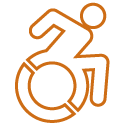Practice


WCET’s Practice Work
WCET equips members with information about promising practices they need to effectively experiment with, develop, and support digital learning technologies. WCET disseminates digital learning research and success stories to assist members in selecting evidence-based teaching, learning, and student support strategies.
Sharing Lessons Learned from Members
WCET is a cooperative of members who share what they have learned about their digital learning innovations. Many of the resources shared in the Practice topics are blogs, papers, research, and webinars featuring WCET members sharing with others in the community who are eager to learn from their experiences.
Practice Topics

Artificial Intelligence
Emergent generative AI tools, including Chat GPT, are changing the way students interact with higher education.
Cost and Price of Distance Education
Since the COVID-19 pandemic, the rise in distance education enrollment, with nearly 64% of students taking at least one online course in 2024, highlights the need to understand how the costs of creating and delivering online courses relate to the tuition and fees institutions charge.
Quality
High-quality online learning is incredibly powerful and effective, and learners of all backgrounds should expect a learning environment that helps them reach their goals.
Assessment & Academic Integrity
Assuring that the student enrolled in a course is the same one who completes assessments using technical and/or pedagogical methods.
Accessibility
Digital learning technologies require using design techniques to assist those with disabilities and everyone accessing the content.
Open Educational Resources
Designed to lower student textbook costs, OER also helps faculty make content culturally appropriate and improve student learning.
Cybersecurity & Data Protection
With the increased use of digital learning technologies in higher education, measures are required to protect data and avoid service disruptions.
Learning Analytics
Measurement, collection, analysis, and reporting of data about learners to understand and optimize learning and its environments.
Digital Learning Definitions
Higher education uses many variations of terms to describe slightly different digital learning modalities, which has long confused students, faculty, administrators, and the general public.
Emerging & Previous Practice Topics
Past teaching, learning, or student digital learning strategies that WCET followed but has not recently updated.